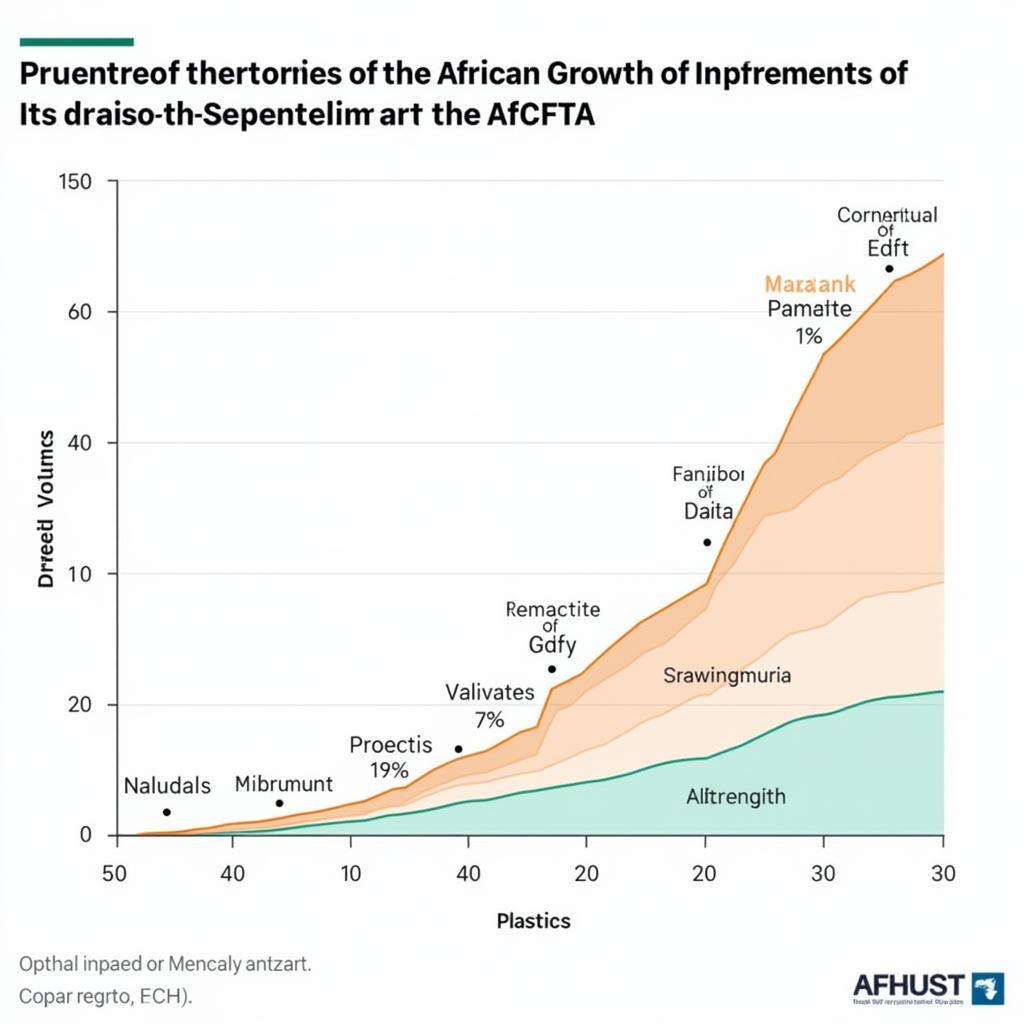Unlocking Africa’s Potential: The African Continental Free Trade Zone
The African Continental Free Trade Zone (AfCFTA) is poised to revolutionize trade and economic development across the African continent. This groundbreaking agreement aims to create a single market for goods and services, fostering economic integration and boosting intra-African trade. Read on to discover how the AfCFTA is shaping a new era for Africa.
Understanding the African Continental Free Trade Zone (AfCFTA)
The AfCFTA agreement, signed in 2018 and launched in 2021, represents a monumental step towards a unified African market. The african free trade zone aims to eliminate tariffs on 90% of goods, reduce non-tariff barriers, and simplify customs procedures. This will significantly boost intra-African trade, currently lagging behind other regions of the world.
Key Objectives of the AfCFTA
- Boosting Intra-African Trade: The primary goal is to dramatically increase trade within Africa, creating new markets for african goods and services.
- Promoting Industrial Development: By fostering a larger market, the AfCFTA incentivizes the development of local industries and value chains.
- Creating Jobs and Economic Growth: Increased trade and industrialization will naturally lead to job creation and stimulate economic growth across the continent.
- Enhancing Competitiveness: The AfCFTA aims to make African businesses more competitive on the global stage by providing access to a larger market and promoting economies of scale.
- Deepening Economic Integration: The agreement lays the groundwork for deeper economic integration and cooperation across Africa, ultimately leading to greater prosperity and stability.
How Will the AfCFTA Benefit Africa?
The AfCFTA offers a multitude of benefits for African countries. It will create a larger market for businesses, stimulate investment, facilitate the movement of people and goods, and promote regional integration. The agreement also has the potential to lift millions out of poverty by creating jobs and increasing incomes.
“The AfCFTA is not just a trade agreement,” says Dr. Abiola Ajayi, a renowned economist specializing in African development. “It is a catalyst for transformation, poised to unlock Africa’s immense economic potential and usher in a new era of prosperity.”
Challenges and Opportunities of the African Continental Free Trade Zone
While the AfCFTA holds immense promise, it also faces significant challenges. These include addressing infrastructure deficits, harmonizing regulations, and building institutional capacity. Overcoming these challenges will require strong political will and effective implementation strategies.
What are the potential obstacles to the success of the AfCFTA?
Some potential obstacles include political instability, inadequate infrastructure, and varying levels of development across African countries. Addressing these challenges is crucial for the successful implementation of the AfCFTA.
“The key to success lies in effective implementation and strong political commitment,” adds Dr. Kwame Nkrumah, a leading expert on African trade policy at the University of Ghana. “African countries must work together to overcome these challenges and realize the full potential of the AfCFTA.”
The Future of the African Continental Free Trade Zone
The AfCFTA is expected to significantly transform the African economic landscape. It has the potential to boost intra-African trade, attract foreign investment, and create millions of jobs. The agreement represents a major step towards achieving the African Union’s Agenda 2063, which envisions a prosperous and integrated Africa.
 African Continental Free Trade Zone Future Growth
African Continental Free Trade Zone Future Growth
The african free trade zone definition encompasses a wide range of sectors, from agriculture and manufacturing to services and technology. This comprehensive approach aims to create a diversified and resilient African economy. The african continental fta 2019 marked a crucial step in this ongoing journey of integration. Understanding the nuances of african foreign policy is also crucial for navigating the complexities of trade and development in the region.
Conclusion
The African Continental Free Trade Zone (AfCFTA) offers a unique opportunity for Africa to unlock its economic potential and achieve sustainable development. By fostering greater economic integration and boosting intra-African trade, the AfCFTA is paving the way for a more prosperous and interconnected Africa.
FAQ
- What is the AfCFTA? (The AfCFTA is a free trade agreement aimed at creating a single market for goods and services in Africa.)
- When did the AfCFTA come into effect? (The AfCFTA officially launched on January 1, 2021.)
- How many countries are part of the AfCFTA? (Nearly all African countries have signed the AfCFTA agreement.)
- What are the main objectives of the AfCFTA? (The main objectives include boosting intra-African trade, promoting industrial development, and creating jobs.)
- How will the AfCFTA benefit African countries? (The AfCFTA will create a larger market, stimulate investment, and promote regional integration.)
- What are the challenges facing the AfCFTA? (Challenges include infrastructure deficits, regulatory harmonization, and capacity building.)
- What is the future of the AfCFTA? (The AfCFTA is expected to significantly transform the African economic landscape and contribute to sustainable development.)
When you need support, please contact us by Phone: +255768904061, Email: kaka.mag@gmail.com, or visit our address: Mbarali DC Mawindi, Kangaga, Tanzania. Our customer service team is available 24/7.




